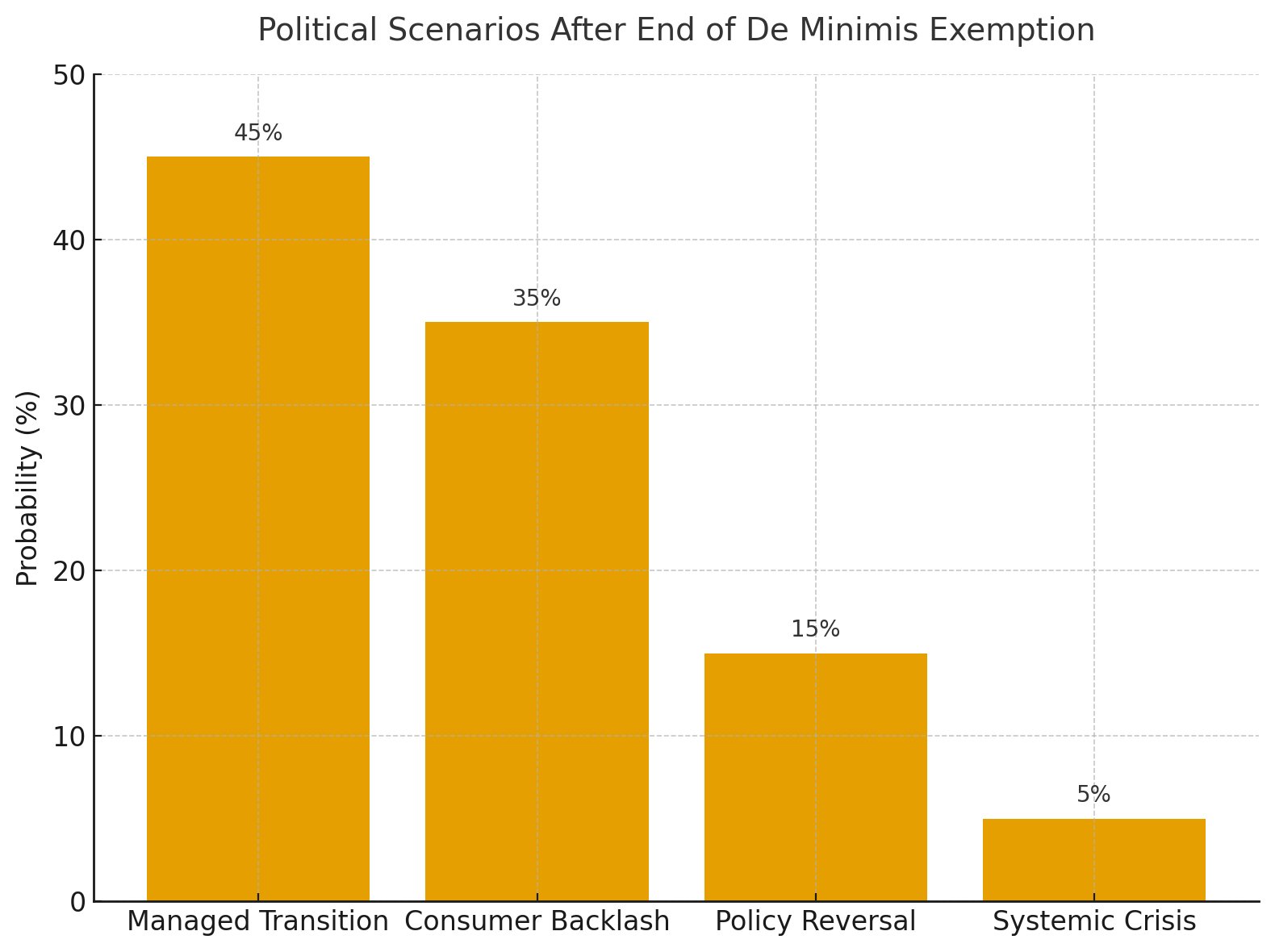The termination of the de minimis exemption is not just a dry matter of customs law—it carries profound political consequences. For years, millions of Americans, particularly lower-income households, relied on duty-free small packages to buy cheap goods from abroad, whether fast fashion from Shein, household trinkets from Temu, or small electronic gadgets shipped directly from Asia. Ending that exemption overnight has created a sharp, visible price shock that lands on consumers in the most politically sensitive way: at the checkout counter. Unlike abstract tariffs on steel or semiconductors, which only gradually work their way through supply chains, this policy makes people feel the pain immediately when they order a $20 item and suddenly face an $80 flat duty at delivery. It is precisely this visibility that makes the measure a political lightning rod.
Governments that implement sudden consumer-facing tariffs risk being perceived as both economically reckless and politically out of touch. The policy is being sold as a defense of U.S. manufacturing, a way to protect jobs, and a barrier against illicit goods such as fentanyl. But for ordinary citizens, the narrative is far simpler: “my package just got taxed at four times its value.” This kind of shock can feed into an anti-incumbent mood, especially if opposition parties frame it as a regressive tax on working families while wealthier households barely notice. The flat-rate duty mechanism—$80 to $200 per package—magnifies the sense of unfairness, because it penalizes low-cost items disproportionately. A $20 toy from China now costs $120, but a $1,500 luxury bag only rises to $1,580. That asymmetry is politically explosive.
Logistically, the turmoil adds to the impression of poor governance. Postal services worldwide are halting shipments, backlogs are forming at customs, and consumers are left confused as to who is collecting duties. These images of chaos—packages piling up, international sellers pulling out of the U.S. market, small online businesses complaining of ruin—can quickly morph into a symbol of failed economic management. If a government insists on permanence (“dead on arrival” for reinstating exemptions) while chaos persists, the opposition has a ready-made narrative of arrogance and insensitivity.

The chart illustrates that while a managed transition remains the most likely outcome, the risk of consumer backlash is significant. A smaller but non-trivial chance exists for policy reversal, and in a worst-case scenario, the chaos could indeed snowball into a systemic political crisis that threatens the survival of the government.
Whether this policy could “topple” a government depends on timing and context. If implemented in a period of already high inflation, voter discontent, and political polarization, it may become the proverbial straw that breaks the camel’s back. Tariff shocks have historically reshaped elections: think of the Smoot-Hawley Tariff Act of 1930, which became synonymous with deepening the Great Depression and cost Republicans dearly. A modern replay—where millions of small-ticket consumers feel directly attacked—could galvanize populist backlash, particularly if it aligns with broader discontent over living costs, inequality, and elite detachment.
Political Scenarios After End of De Minimis Exemption
| Scenario | Description | Probability (rough) | Political Consequence |
|---|---|---|---|
| Managed Transition | Government smooths logistics, offers rebates or carve-outs, anger fades over 6–12 months. | 45% | Policy remains; approval ratings dip but government endures. |
| Consumer Backlash | Visible price shocks (“$20 item becomes $120”) spark media outrage and grassroots anger. | 35% | High risk of defeat in next election or collapse of a fragile coalition. |
| Policy Reversal | Leadership introduces carve-outs (e.g., essentials) or partially retreats to targeted tariffs. | 15% | Embarrassment and credibility hit, but governing coalition survives. |
| Systemic Political Crisis | Logistics chaos persists; protests and non-compliance grow; policy becomes symbol of incompetence. | 5% | Resignations or early elections; government topples. |